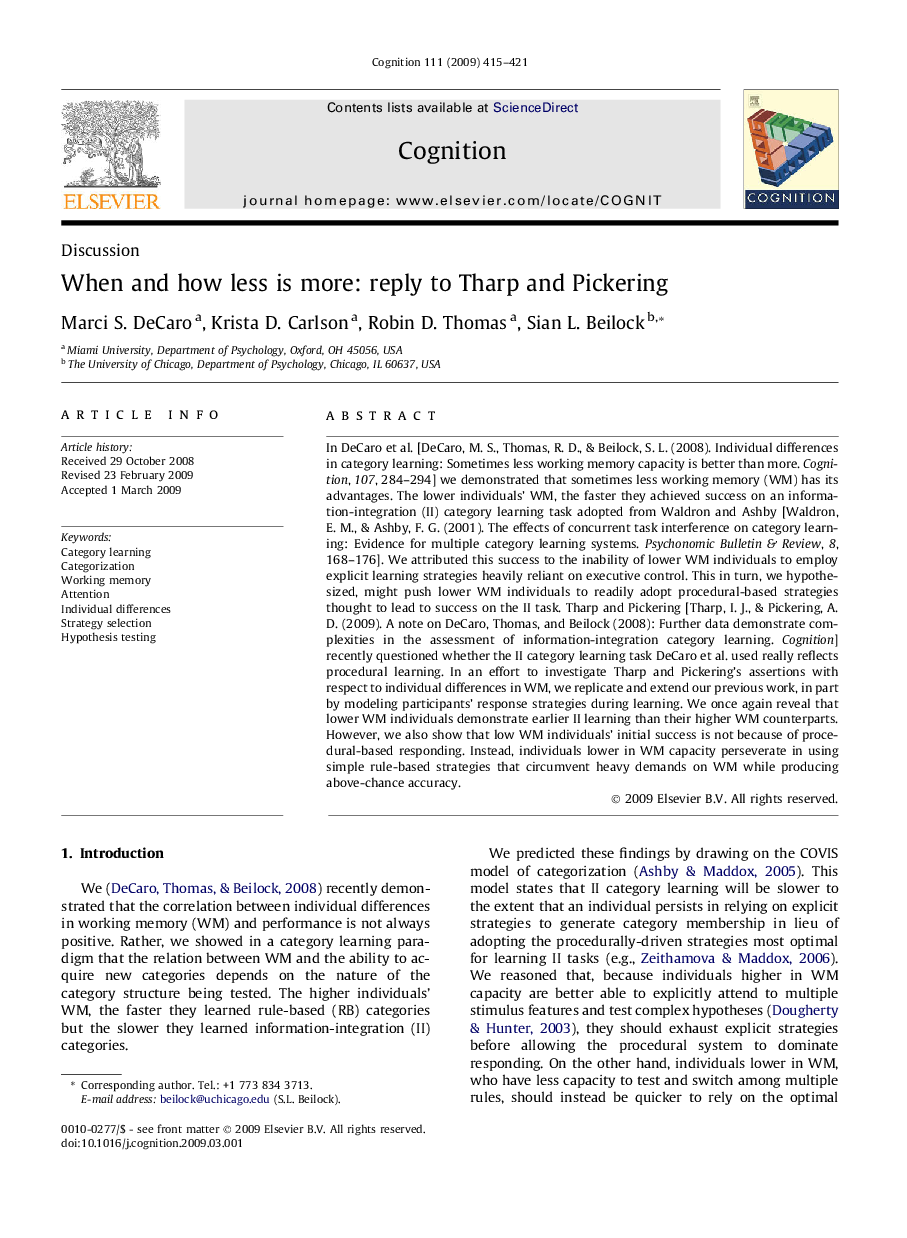| کد مقاله | کد نشریه | سال انتشار | مقاله انگلیسی | نسخه تمام متن |
|---|---|---|---|---|
| 10457880 | 921925 | 2009 | 7 صفحه PDF | دانلود رایگان |
عنوان انگلیسی مقاله ISI
When and how less is more: reply to Tharp and Pickering
دانلود مقاله + سفارش ترجمه
دانلود مقاله ISI انگلیسی
رایگان برای ایرانیان
کلمات کلیدی
موضوعات مرتبط
علوم زیستی و بیوفناوری
علم عصب شناسی
علوم اعصاب شناختی
پیش نمایش صفحه اول مقاله

چکیده انگلیسی
In DeCaro et al. [DeCaro, M. S., Thomas, R. D., & Beilock, S. L. (2008). Individual differences in category learning: Sometimes less working memory capacity is better than more. Cognition, 107, 284-294] we demonstrated that sometimes less working memory (WM) has its advantages. The lower individuals' WM, the faster they achieved success on an information-integration (II) category learning task adopted from Waldron and Ashby [Waldron, E. M., & Ashby, F. G. (2001). The effects of concurrent task interference on category learning: Evidence for multiple category learning systems. Psychonomic Bulletin & Review, 8, 168-176]. We attributed this success to the inability of lower WM individuals to employ explicit learning strategies heavily reliant on executive control. This in turn, we hypothesized, might push lower WM individuals to readily adopt procedural-based strategies thought to lead to success on the II task. Tharp and Pickering [Tharp, I. J., & Pickering, A. D. (2009). A note on DeCaro, Thomas, and Beilock (2008): Further data demonstrate complexities in the assessment of information-integration category learning. Cognition] recently questioned whether the II category learning task DeCaro et al. used really reflects procedural learning. In an effort to investigate Tharp and Pickering's assertions with respect to individual differences in WM, we replicate and extend our previous work, in part by modeling participants' response strategies during learning. We once again reveal that lower WM individuals demonstrate earlier II learning than their higher WM counterparts. However, we also show that low WM individuals' initial success is not because of procedural-based responding. Instead, individuals lower in WM capacity perseverate in using simple rule-based strategies that circumvent heavy demands on WM while producing above-chance accuracy.
ناشر
Database: Elsevier - ScienceDirect (ساینس دایرکت)
Journal: Cognition - Volume 111, Issue 3, June 2009, Pages 415-421
Journal: Cognition - Volume 111, Issue 3, June 2009, Pages 415-421
نویسندگان
Marci S. DeCaro, Krista D. Carlson, Robin D. Thomas, Sian L. Beilock,